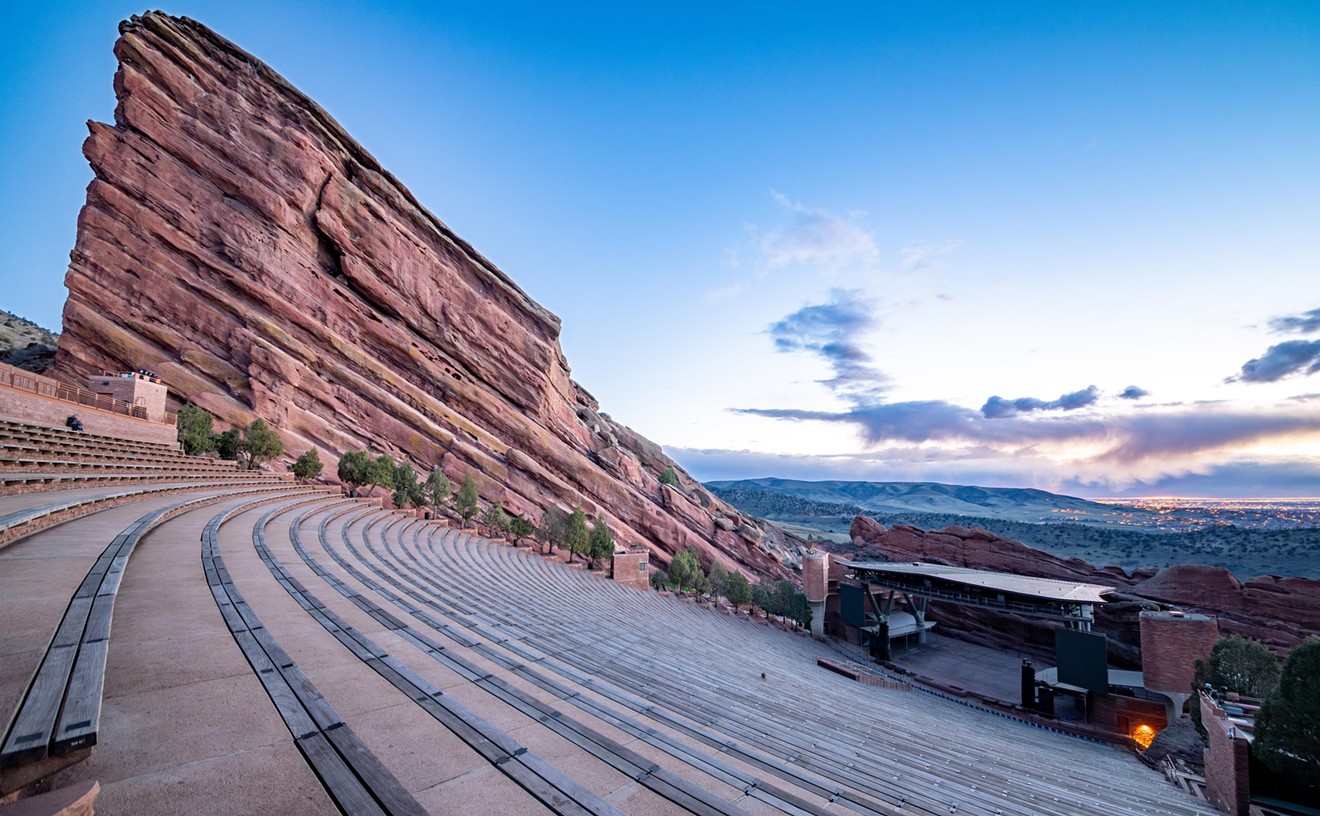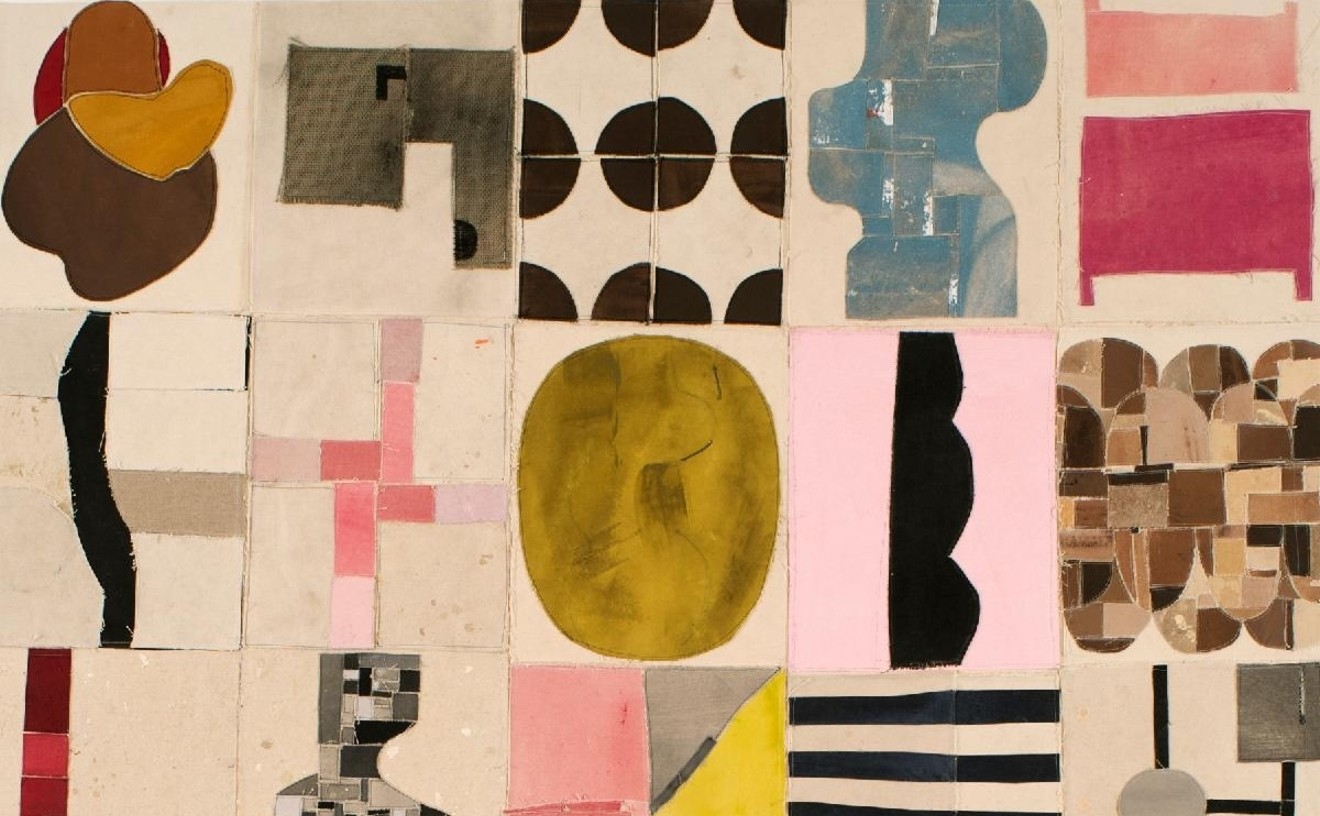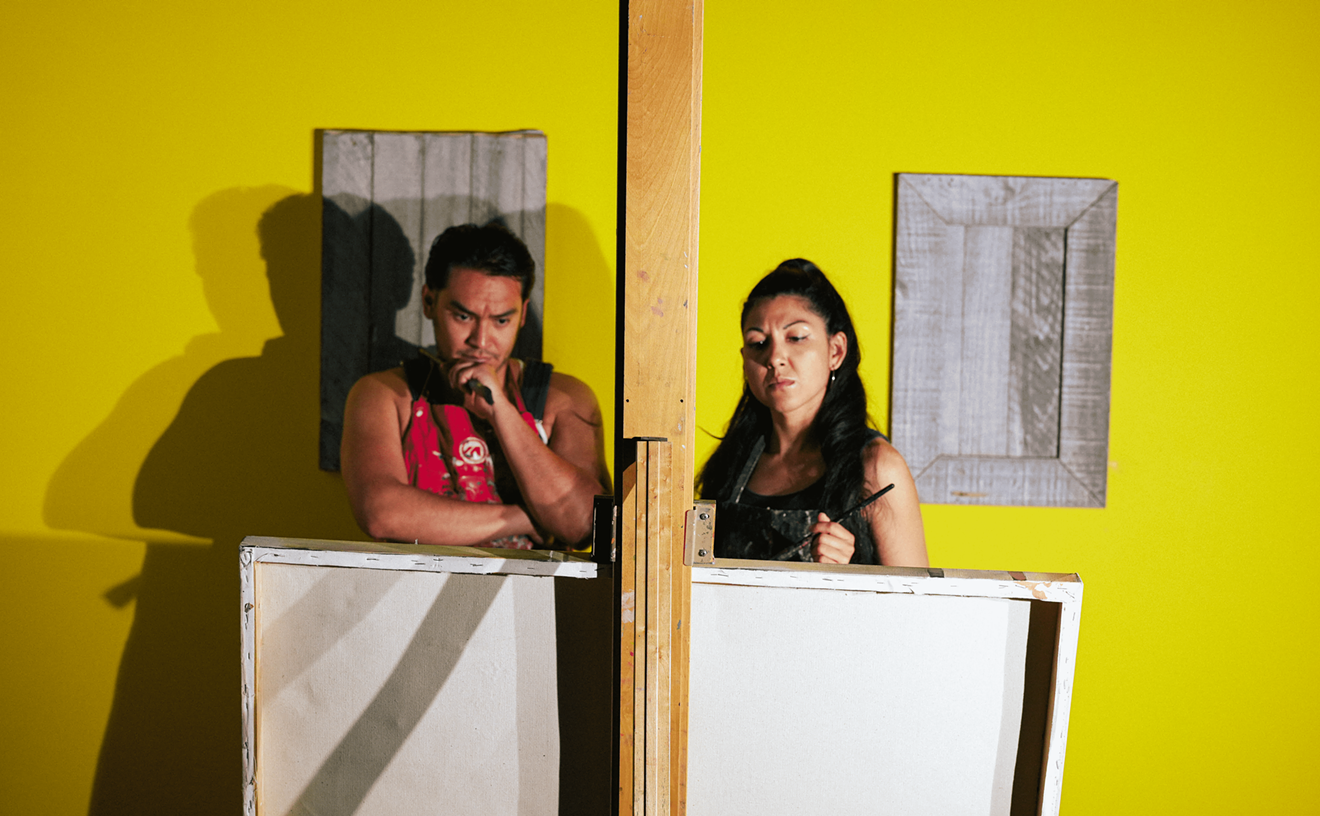I went to the Bug Theatre's production of Godot with no particular expectations. The days when the play puzzled and infuriated the theater-going public, garnering equal parts derision and passionate support, are long gone -- although I can clearly remember the first time I read it, sprawled on a couch in a lover's apartment while he was away at work. I was determined to appreciate the damn thing (I was, after all, a literature major) whether I understood it or not. The amazing thing was that I did. The language caught me -- its spareness and its music -- and I fell in love with all things Beckett. I was astonished by his worldview, the sense of life as something endlessly dwindling and at its core a nothingness that might be -- in the most unsentimental way -- transcendent. "Where there is nothing, there is God," Samuel Beckett's countryman W.B. Yeats once said.
A couple of decades later, after having viewed a few too many bad productions of Beckett's plays, I started wondering if the gaunt, craggy, enigmatic old Irishman was really everything I'd thought him.
He is. At the Bug, director Mare Trevathan Philpott works with an immediacy and clarity of vision that clears away the crust of time, fashion, opinion and academic analysis and lets us see the play's white bones -- and what a solid and extraordinary pattern they make.
Godot has its roots in the theater of the absurd. Two tramps, Vladimir and Estragon, meet daily in some indefinable place -- a road, a field, perhaps King Lear's blasted heath -- and stay together till evening. The landscape is empty of everything except a small tree. (At the Bug, however, we're reminded that the tramps are in a theater by the flushing of a john whenever Vladimir goes offstage to take a leak.) The two men are waiting for Godot. We don't know who Godot is -- critical speculation ranges from God himself to death to a French bicyclist named Godeau whom Beckett admired -- and anyway, he doesn't come. The tramps engage in some vaudeville-style business using their hats and a pair of boots. They experience physical aches and intense feelings of futility. The bickering, games, angry flare-ups and moments of sentiment with which they pass the time are interrupted by the entrance of Pozzo. He is leading the ironically named Lucky by a rope; Lucky is laden down with baggage. Vladimir experiences a moment of ethical concern -- "It's a scandal...to treat a man like that" -- but his scruples soon fade, and Estragon has no scruples at all. He wants only to exploit the situation for whatever he can get out of it -- food, money or the chance to kick Lucky. The action in the second act is very similar, with some significant differences.
Philpott has cast two excellent actors, Gary Culig and Brett Aune, as Vladimir and Estragon. Culig's Estragon is the sloppier of the two tramps, playful, sulky, gleefully malicious, wearing a loud checked jacket and a tie with huge circles spinning on it. As Vladimir, Brett Aune is almost dapper, pecking about the stage like a bird, a spry little figure in a neat black suit. Both men have slightly Chaplinesque walks, and both perform repetitive bits of music-hall business -- Aune with great meticulousness.
Many productions of Godot are heavy and portentous; sometimes the action seems endless (I suppose it can be argued that this is appropriate). Culig and Aune are hilarious, however, and the dialogue feels swift and precise -- and then, at the end, absolutely heartbreaking. Wearing a colonial-style pith helmet, Kevin Hart is an authoritative Pozzo; his endless fiddling with pipe, throat spray and watch mirrors the tramps' obsessive play with their bowler hats. Pozzo is a pathetic bully, by turns callous, sentimental, cruel or humbly imploring. As Lucky, Dennis Rodriguez is called on to stand for long periods of time with his mouth open, his eyes circled with black, his feet turned out and his knees slightly bent, looking like a clown, a puppet, something inanimate. The shocking thing is that while his first appearance on stage stuns us, our pity and concern -- like Vladimir's -- soon turn to indifference. "Habit," as Vladimir later observes, "is a great deadener." But when Lucky begins his lengthy, incomprehensible monologue, the result is electrifying. This speech must be at least ten minutes long, and it's a testament to Rodriguez's conviction and the deftness of the direction that we listen to every word, trying to piece these words together to make meaning, sometimes feeling we're successful or almost successful, sometimes giving up, even as Lucky sputters into complete physical and vocal incoherence.
Sam Deutsch plays, with touching solemnity, the boy who every night brings news that Godot will not come.
The setting for this production is ambiguous. We appear to be outside, but the little tree is patently artificial (the green leaves in the second act are small lights) and there are bits of what looks like broken scenery at its base. The offstage toilet is not the only self-consciously theatrical reference. Pozzo interacts directly with the audience more than once, encouraging members to laugh in order to prove his theory that "For each one who begins to weep, somewhere else another stops. The same is true of the laugh." At one point, Estragon decides to leave and heads for the horizon, which is poetically lit in sunset pinks and blues. He hits the stage's back wall with a thud.
Everything about this production coheres, everything is clean and defined. The groupings on stage are carefully composed, and the direction takes deliberate advantage of tricks of perspective as the actors move toward or away from the audience. Each individual performance is strong, and all the performances are calibrated to work together. Some bits of action are mesmerizing. For instance, there's a famous and very beautiful sequence when Didi and Gogo talk about the dead:
Vladimir: They make a noise like wings.
Estragon: Like leaves.
Vladimir: Like sand.
Estragon: Like leaves.
Silence.
Twice during this recital, the two men tilt their heads to the side and listen. These are compelling and significant moments. Unfortunately, one woman in the opening-night crowd found them irresistibly funny and whinnied with laughter every time the actors paused. Fortunately, Brett Aune had the presence and intensity to still the cachinnation for Vladimir's moment of anguished revelation: "Astride of a grave and a difficult birth. Down in the hole, lingeringly, the grave-digger puts on the forceps. We have time to grow old. The air is full of our cries." Nonetheless, I'd like to see the play on a quieter night, when I could focus on those silent, empty spaces where Beckett's meaning lies.











